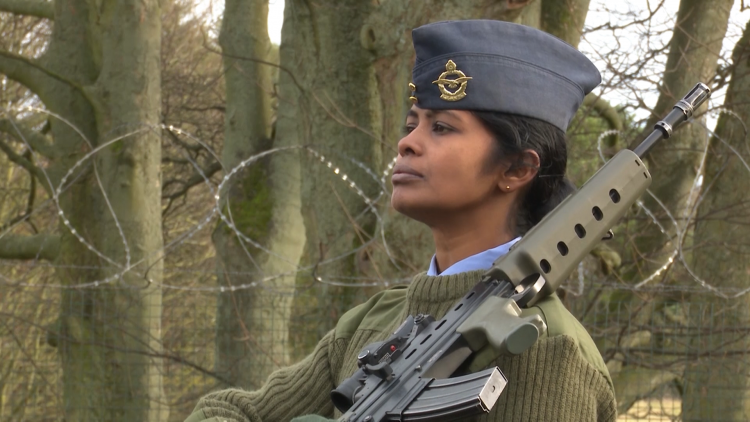Photograph: Forces Network
Sri Lankan soldiers have finished a course at a British military school this week, becoming the first Sri Lankan women to graduate from the Infantry Training Centre in Catterick, UK despite concerns about rights abuses committed by Sri Lankan troops.
"It's a rare chance, so we are really happy," said Sri Lanka’s Flt Lt Attale, one of the soldiers to complete the course.
The training provided by the British comes despite concerns over crimes committed by Sri Lankan troops, including the shelling of hospitals, sexual violence against Tamil men and women, and the execution of surrendering Tamils. United Nations reports have outlined the crimes reportedly committed by the Sri Lankan military, for which no prosecutions have taken place.
However, Sri Lankan troops continue to engage with several international training programs.
"[Lieutenant Attale and Corporal Amarasena] have done very well," said Colour Sergeant Paul Money, one of the instructors at the centre in Catterick. "They've achieved a lot to say they're the first two female Sri Lankan to come over and actually do the course."
The two soldiers will be expected to teach their own national military divisions when they return.
Commenting on the training, Sri Lankan politician Namal Rajapapksa, son of Mahinda Rjapaksa who oversaw the military offensive that killed tens of thousands of Tamils, said,
“Best wishes to them both for keeping the flag flying high.”
Britain has already come under criticism for its training of Sri Lankan troops, with secret filming at the Scottish Police academy revealing deep ties between Scotland’s police force and Sri Lanka’s Special Task Force – a notorious paramilitary unit that has been accused of directly carrying out war crimes.
The UK government recently stated that "international criminal justice and accountability is a fundamental element" of its engagement with Sri Lanka, however maintained that the UN Human Rights Council resolutions were the best way of achieving accountability.
We need your support
Sri Lanka is one of the most dangerous places in the world to be a journalist. Tamil journalists are particularly at threat, with at least 41 media workers known to have been killed by the Sri Lankan state or its paramilitaries during and after the armed conflict.
Despite the risks, our team on the ground remain committed to providing detailed and accurate reporting of developments in the Tamil homeland, across the island and around the world, as well as providing expert analysis and insight from the Tamil point of view
We need your support in keeping our journalism going. Support our work today.
For more ways to donate visit https://donate.tamilguardian.com.


